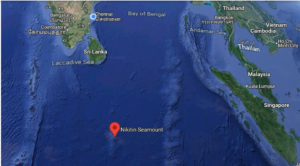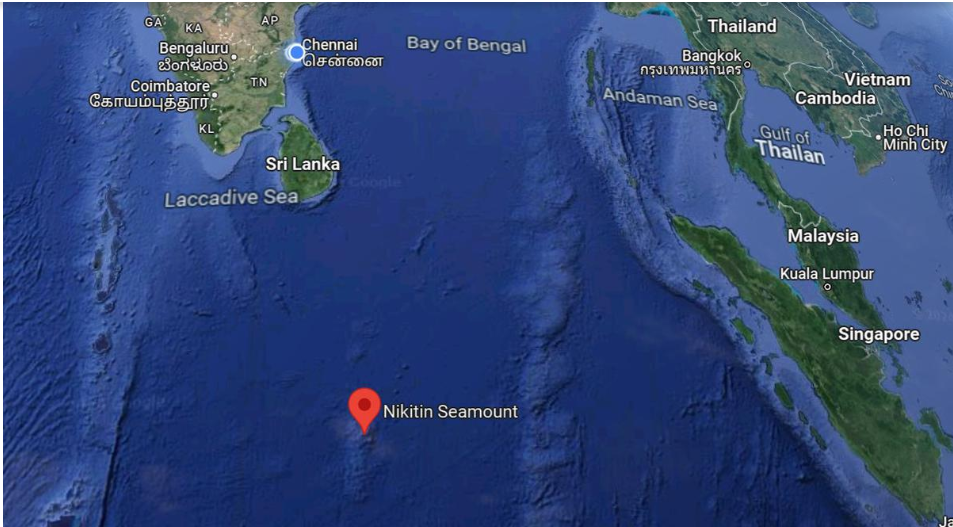Amid growing concerns about China’s expanding influence in the Indian Ocean region, India has taken a significant step by filing an application with the International Seabed Authority (ISA) to explore two vast tracts of the Indian Ocean seabed. These areas, located beyond India’s jurisdiction, hold immense potential for strategic and economic benefits. This article explores India’s motivations, the implications of its move, and the broader geopolitical dynamics shaping the race for maritime resources in the Indian Ocean.  for more information click on this link
for more information click on this link
Understanding India’s Maritime Strategy India’s:-
Understanding India’s Maritime Strategy India’sinterest in maritime security and resource exploration is not new, as the country seeks to safeguard its maritime interests and assert its influence in the Indian Ocean region. We delve into India’s maritime strategy, highlighting its focus on maritime diplomacy, naval modernization, and blue economy initiatives. India’s pursuit of deep-sea mining rights reflects its strategic calculus and its aspirations to become a major maritime power in the 21st century.
China’s Maritime Ambitions and India’s Response China’s expanding presence in the Indian Ocean, fueled by its Belt and Road Initiative (BRI) and naval deployments, has raised alarms in India and other regional stakeholders. We examine China’s maritime ambitions, including its investments in port infrastructure, naval capabilities, and resource exploration efforts. India’s decision to join the race for deep-sea mining rights can be seen as a strategic response to China’s assertiveness in the region, aimed at safeguarding its own interests and countering Chinese influence.
Exploring the Potential of Deep-Sea Mining The two tracts of the Indian Ocean seabed targeted by India for exploration hold significant potential for valuable minerals such as polymetallic nodules, cobalt-rich ferromanganese crusts, and hydrothermal sulfides. We explore the economic and strategic implications of deep-sea mining, including its potential to fuel India’s growing industrial needs, enhance energy security, and stimulate economic growth. However, deep-sea mining also poses environmental risks and regulatory challenges that must be carefully addressed.
Geopolitical Dynamics in the Indian Ocean Region The Indian Ocean region is a hotspot of geopolitical competition, with major powers vying for influence and control over strategic sea lanes and maritime resources. We analyze the geopolitical dynamics at play, including India’s relations with China, the United States, and other regional actors. India’s move to explore new sea patches underscores the shifting balance of power in the Indian Ocean and the evolving dynamics of maritime security and governance.
Legal and Regulatory Framework for Deep-Sea Mining The legal and regulatory framework governing deep-sea mining is complex and evolving, with international agreements such as the United Nations Convention on the Law of the Sea (UNCLOS) providing a framework for resource exploration and exploitation. We examine the legal principles and guidelines governing deep-sea mining activities, including issues related to jurisdiction, environmental protection, and benefit-sharing arrangements.
Environmental and Ethical Considerations While deep-sea mining holds promise for economic development, it also raises concerns about its potential environmental impact and ethical implications. We discuss the environmental risks associated with deep-sea mining, including habitat destruction, biodiversity loss, and seabed disturbance. We also explore ethical considerations, such as the rights of indigenous communities and the need for sustainable resource management practices.
India’s Role in Shaping the Future of Deep-Sea Mining As India seeks to assert its presence in the Indian Ocean through deep-sea mining, it has an opportunity to shape the future of this emerging industry in a responsible and sustainable manner. We discuss India’s role in promoting international cooperation, fostering technology innovation, and advocating for environmental stewardship in deep-sea mining activities. By balancing economic interests with environmental concerns, India can demonstrate leadership in harnessing the potential of the ocean while safeguarding its long-term health and resilience.
India’s decision to explore new sea patches in the Indian Ocean represents a strategic move to assert its maritime interests and counter the growing influence of China in the region. By tapping into the potential of deep-sea mining, India aims to enhance its economic prosperity, energy security, and geopolitical standing in the 21st century. However, the pursuit of deep-sea mining must be accompanied by robust environmental protection measures, ethical considerations, and international cooperation to ensure sustainable and equitable outcomes for all stakeholders. As India navigates the complexities of deep-sea exploration, it has an opportunity to set a positive example for responsible ocean governance and contribute to the collective effort to build a more prosperous and sustainable future for the Indian Ocean region and beyond.





